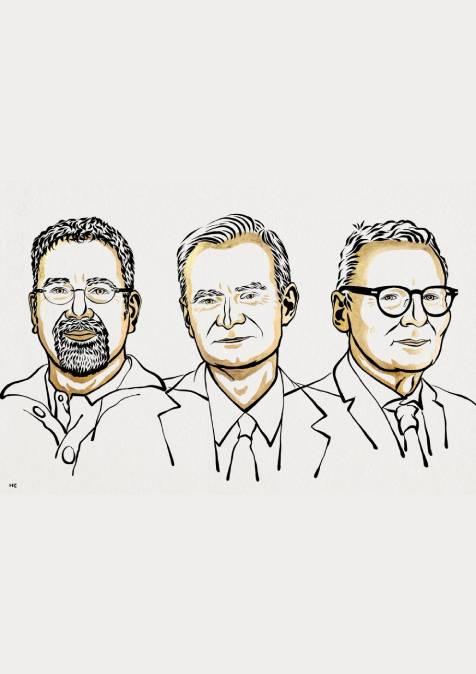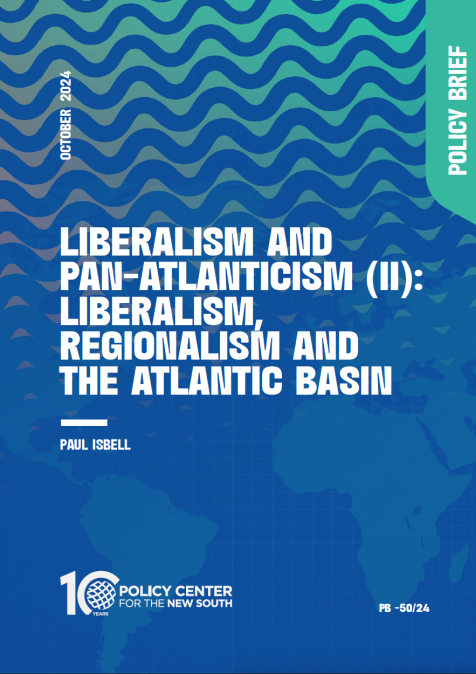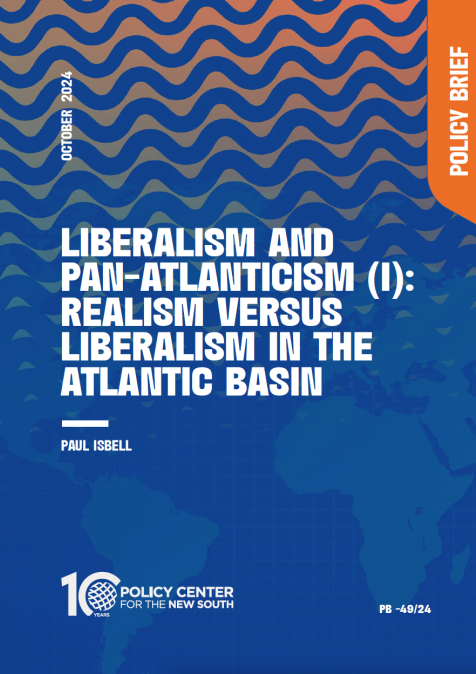Publications /
Opinion
Nigerian and « design thinking process » expert, Ade Mabogunje has worked in Africa, India and Europe, before settling in California, where he is a Director at Stanford University. What does it take exactly for innovation to happen ? Such is the line of his thinking and teaching. He’s been invited twice to the 2016 and 2017 Atlantic Dialogues to share his knowledge with two cohorts of 50 Emerging Leaders from Africa, Europe and the Americas, selected by the OCP Policy Center. This Professor who refuses to be called so prefers to describe himself as an « ant ». He believes strongly in team spirit - if not Ubuntu, this African set of values that states in all the Bantu languages that « I am a human being only through other human beings ».

What is the first condition for innovation ?
Children play naturally… Its very important to play, but somehow we flush out the most basic instincts of human creativity at school. Playing is not in the program ! Young persons dreams are fueling the future, and may invent new sets of values in which innovation is key.
Innovation needs a lot of courage and creativity. It happens when we allow to find ourselves vulnerable and take risks, like in the Wild West when people were facing a frontier. It also happens with a spirit of charity and sacrifice, a generosity that induce a way of thinking that goes beyond yourself and your family. Service to community is a key point.
What is your answer to Emerging Leaders who have replied to that « dreamer » perspective that you can’t change your environment and have to be realistic ?
We are each other’s environment. We create and shift it all the time. Our world is more and more open, comlex, dynamic and networked – this is where we are moving into. This trend is global. When we look at such a world, the real question is : what do we want out of it ?
Is it a time that we can have a single leader ? No. We have too much information. For instance, if you are used to managing a community of 1 million people, and it grows suddenly to 4 million, there are chances that as a leader, you won’t be able to comprehend just that size.
More and more, we will come to the conclusion that we work better as a team. Japan did not plan to beat the US in constructing better cars ! It just happens to work better as a team ! Banks finance 88 % of the global GDP. Leaders live on debt because their countries are not producting anything. My advice is this : have friends in the Financial sector and be aware of the structures of our finance system. Our capacity to finance ourselves begins with the education system… Why are you the most important ? If you produce coffee, why don’t you own Starbucks, control the whole chain and make the most profit ?
Why are you asked in Sillicon Valley to come and teach Ubuntu ?
Because it’s about not pushing each other down. Giving respect and lowering formality encourages the exchange of ideas. I see five layers in a civilization : nature, culture, governance, infrastructure, commerce and fashion. The first layers mentionned stabilize, while the last layers innnovate. The whole combines Learning with continuity and discontinuity. Nature gives young minds, play, innovation and speed. But most cultures refuse to engage with its youth. Sillicon Valley has shown that if young and old can walk together, this is for the better.
Do you place art in fashion, a fast innovating sector, or in culture ?
In fashion. Folks in governement are using actors, drama and play for their story-telling. Art is the way in which we dream the future. If you are able to connect with your artist insside, you can connect with your future. Lots of countries have developped their Hollywood, Bollywood, Nollywood – industries where lies a big potential for the future and the ways in which you can express it. Remember the future doesn’t come in language. Only the past does. Things are named once we’ve made them.
Do you think Africa has something to bring to the world with Ubuntu ?
This very important principale has to be added to others, it cannot work alone. Often, people want a single bullet for a solution, but there is none. Ubuntu is just one of many solutions. It sets the rules of community : one person is a person through other people. This means you treat both strangers and members of your community with sincere warmth. Ubuntu comes out of small hunting communities where people had to look after each other, for a matter of survival. It still comes with seniority.
In our industrial era, status is tied to knowledge and I am defined in comparison to others. Values are linked to superiority in a short temporal horizon. Work is seen as a mean to display status and enjoy it, not as a responsibility.
This « Plantation » set of value has one goal : keep the boss in a good mood. Boss and employees both see the job and the salary as a favor : loyalty to the boss precedes loyalty to the team. Such are the rules of the « Plantation » model : excel at your job, trust your team, do it right the first time, strive for perfection and return favors. This model is called Plantation because it emerged before industrialisation with the farms moving to plantations – an industry in wich all the trees are in a straight line.
Two authors, Victor Hwang and Greg Horowitt – who attended the 2017 Atlantic Dialogues - developped these rules in a book (The Rainforest : The Secret to Building the Next Sillicon Valley, 2012) when they came to Sillicon Valley and found different sets of rules there. What prevails in Sillicon Valley is : break rules and dream, open doors and listen, trust and be trusted, seek fairness not advantage, experiment and iterate together, fail and persist, don’t seek favors but pay them forward – not to the one who gave it to you but to somebody else for his/her own good. Plantation gives efficiency. Ubuntu guarantees warmth, but not efficiency ! We can look at a mix between Ubuntu, Plantation and Rainforest to go forward. The Rainforest model defined by Horowitt is the best for innovation. It induces you to « feel together », have this Earth feel in what you do.









